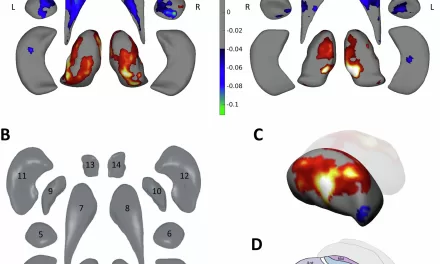A groundbreaking study conducted at the Faculty of Sport and Health Sciences at the University of Jyväskylä has unveiled a significant link between genetic predisposition for higher muscle strength and enhanced longevity, as well as a reduced risk for developing common diseases. This comprehensive international study represents the most extensive exploration to date into the hereditary aspects of muscle strength and its correlation with morbidity.
Utilizing the genome and health data of over 340,000 individuals from Finland, the research sheds light on the pivotal role of muscle strength, particularly hand grip strength, as an indicator of an individual’s physiological resilience against age-related diseases and disabilities.
“Age-related loss of muscle strength is individual and influenced not only by lifestyle but also by genetics,” explained doctoral researcher Päivi Herranen from the Faculty of Sport and Health Sciences.
The study revealed that individuals with a genetic predisposition for higher muscle strength exhibit a slightly lower risk for common noncommunicable diseases and premature mortality. However, this genetic advantage did not translate into improved survival following acute adverse health events compared to the pre-illness period.
“It seems that a genetic predisposition for higher muscle strength reflects more on an individual’s intrinsic ability to resist and protect oneself against pathological changes that occur during aging than the ability to recover or completely bounce back after severe adversity,” Herranen noted.
The research harnessed a unique study population and employed a polygenic score for muscle strength, which synthesizes the effects of hundreds of thousands of genetic variants into a single metric. This allowed for a comprehensive analysis of the associations between inherited muscle strength and various phenotypes, including common diseases.
“This is the first study to investigate the association between a genetic predisposition for muscle strength and various diseases on this scale,” Herranen added.
While the findings offer valuable insights into the interplay between genetics, muscle strength, and health outcomes, Herranen emphasized the need for further research to elucidate the role of lifestyle factors in modulating disease risk.
“Based on these results, we cannot say how lifestyle factors, such as physical activity, modify an individual’s intrinsic ability to resist diseases and whether their impact on health differs among individuals due to genetics,” Herranen remarked.
The study, which forms part of the GenActive project, underscores the significance of interdisciplinary collaboration and highlights the potential of genetic information in refining risk assessment strategies for common diseases and health adversities.












